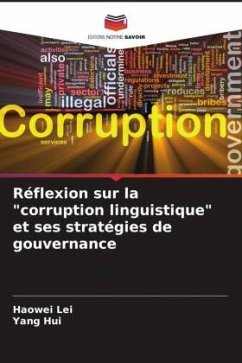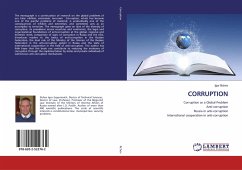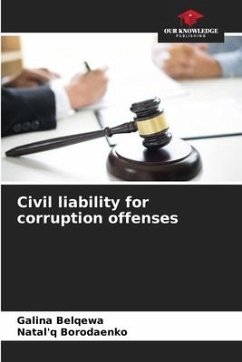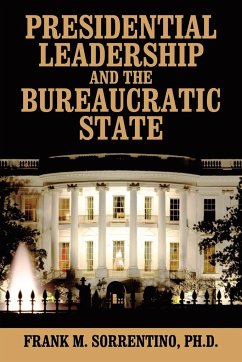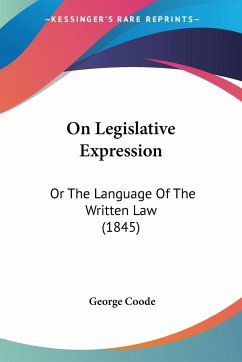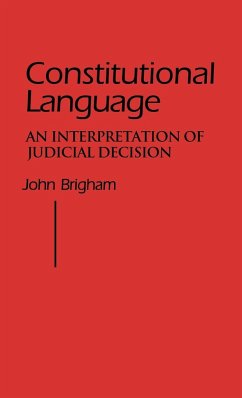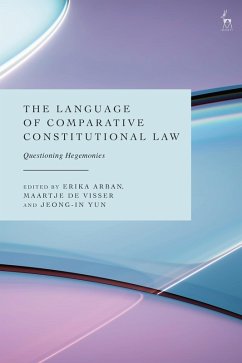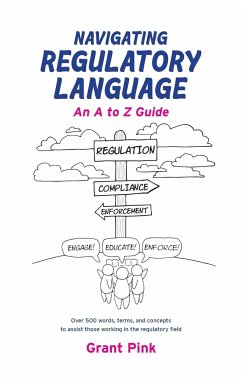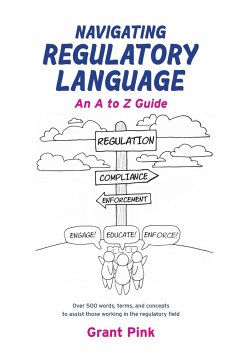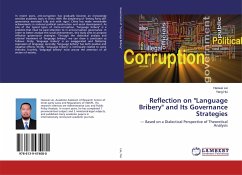
Reflection on "Language Bribery" and Its Governance Strategies
- Based on a Dialectical Perspective of Theoretical Analysis
Versandkostenfrei!
Versandfertig in 6-10 Tagen
29,99 €
inkl. MwSt.

PAYBACK Punkte
15 °P sammeln!
In recent years, anti-corruption has gradually become an increasingly sensitive academic topic in China. With the deepening of "Seeing Party self-governance exercised fully and with rigor", China has made remarkable achievements in national political construction and social development. As one of the typical types of micro-corruption, "language bribery" is a problem that must be paid attention to in anti-corruption governance. In order to better analyze this social phenomenon, this study aims to propose effective governance strategies. Through the dialectical analysis and rational treatment of...
In recent years, anti-corruption has gradually become an increasingly sensitive academic topic in China. With the deepening of "Seeing Party self-governance exercised fully and with rigor", China has made remarkable achievements in national political construction and social development. As one of the typical types of micro-corruption, "language bribery" is a problem that must be paid attention to in anti-corruption governance. In order to better analyze this social phenomenon, this study aims to propose effective governance strategies. Through the dialectical analysis and rational treatment of "language bribery", we can draw a conclusion as follows: Firstly, "language bribery" is an exaggerated and flattering expression of language; secondly, "language bribery" has both positive and negative effects; thirdly, "language bribery" is intrinsically related to some theories; fourthly, "language bribery" must arouse the attention of all sectors of society.



